The phrase “Allah is Great” in Arabic is “Allāhu Akbar” (الله أكبر). It is among the most recognized and powerful expressions in the Islamic world. However, its spiritual resonance and theological significance extend far beyond Islam. At its core, this declaration echoes the ancient, shared monotheistic belief in a singular, all-powerful, all-knowing Creator, a belief that binds Islam, Christianity, and Judaism, the three major Abrahamic religions.
In this comprehensive exploration, we’ll dive into the meaning of “Allah is Great,” its use in Islamic practice, and how this concept aligns with and reflects universal truths acknowledged by other world religions, particularly those rooted in Abrahamic monotheism. This in-depth look aims to foster understanding, unity, and respect through shared theological insights.
Understanding the Phrase: Allāhu Akbar (الله أكبر)
Allāhu Akbar” (الله أكبر) means “Allah is Greater”. It is a powerful declaration of God’s absolute greatness, beyond all comparison or limitation. It serves as a central phrase in Islamic worship and daily life, reminding believers of God’s supreme authority and presence.
Arabic: الله أكبر
Transliteration: Allāhu Akbar
Literal Meaning: Allah is Greater (than everything and anything)
Although commonly translated as “God is Great,” the Arabic construction “Akbar” (أكبر) is a comparative form, meaning “greater.” Thus, the phrase implies that Allah is greater than all things, beyond all comprehension, comparison, and limitation.
Context in Islam
“Allāhu Akbar” is foundational in:
- Daily Prayers (Ṣalāh – صلاة): Recited at the beginning of the call to prayer (Adhān – أذان) and throughout all five daily prayers.
- Moments of Awe and Gratitude: Uttered during times of reflection, joy, or even grief, symbolizing divine transcendence over all.
- Islamic Calligraphy and Art: Often beautifully inscribed on mosques, Qur’anic manuscripts, and Muslim homes.
Allah: The Name of the One True God
Arabic: الله
Transliteration: Allāh
Meaning: The God, uniquely referring to the One Supreme Deity in Islam
The name Allah is not exclusive to Muslims. In fact:
- Arabic-speaking Christians and Jews also refer to God as Allah in their scriptures and daily worship.
- The Syriac term “Alaha” and the Hebrew “Eloah” are linguistic cousins of Allah, showing common etymological roots.
Monotheism: A Shared Belief in the Oneness of God (Tawḥīd – توحيد)
Arabic: توحيد
Transliteration: Tawḥīd
Meaning: The absolute oneness and uniqueness of God
Tawḥīd is the bedrock of Islamic theology, the belief that Allah is One (Wāḥid – واحد), Unique (Aḥad – أحد), and without partners. This mirrors foundational doctrines in Judaism and Christianity:
Judaism:
Shema Yisrael (שְׁמַע יִשְׂרָאֵל):
“Hear, O Israel: the LORD our God, the LORD is one.” (Deuteronomy 6:4)
This is a direct parallel to Tawḥīd, asserting monotheism with similar clarity and exclusivity.
Christianity (especially early and Unitarian interpretations):
Jesus is recorded as saying:
“The first of all commandments is, Hear, O Israel; The Lord our God is one Lord.” (Mark 12:29)
Although mainstream Christianity includes the doctrine of the Trinity, many early Christians and modern Unitarians uphold a belief in one indivisible God, resonating with Allāhu Akbar in its spiritual humility and reverence.
Prophets and Revelation: A Unified Message
Islam, Christianity, and Judaism all recognize a shared lineage of prophets who conveyed the divine message of monotheism and moral guidance. Figures like Ibrāhīm (Abraham), Mūsā (Moses), and ʿĪsā (Jesus) are honored in all three faiths as messengers of the One God. The Qur’an emphasizes that these prophets were sent to different nations but preached the same core truth: submission to the will of the Almighty. This unified message highlights the deep theological connection among the Abrahamic religions.
Shared Prophets
Islam recognizes and honors many of the same prophets found in the Jewish and Christian traditions:
Prophet Arabic Name Shared Name in Other Faiths
Abraham Ibrāhīm (إبراهيم) Abraham
Moses Mūsā (موسى) Moses
Jesus ʿĪsā (عيسى) Jesus
Noah Nūḥ (نوح) Noah
Adam Ādam (آدم) Adam
The Qur’an asserts that the core message of all prophets was monotheism, righteous living, and submission to the One God, “Allah”. This shared message reinforces the declaration “Allah is Great” as a universal truth.
Manifestations of Allah’s Greatness in Creation, Knowledge, and Mercy
Here are several powerful examples of Allah’s greatness (ʿaẓamat Allāh – عظمة الله) that reflect His unmatched attributes and actions across creation, scripture, and human experience:
1. Creation of the Universe (Khalq al-Kawn – خلق الكون):
Allah created the entire cosmos — galaxies, stars, earth, and all life — from nothing (ex nihilo) with the command “Kun fa-yakūn” (كُن فَيَكُون – “Be, and it is”) [Qur’an 2:117].
This effortless act demonstrates His absolute power over existence.
2. Control Over Nature:
Allah governs natural phenomena — the rain that falls, the sun that rises, and the winds that blow.
Qur’an 30:48:
“It is Allah who sends the winds, and they stir the clouds…”
No force in nature operates independently of His will.
3. Revelation of Divine Scriptures:
Allah revealed guidance through scriptures such as the Tawrah (Torah), Injīl (Gospel), and the Qur’an — each tailored to a specific people, culminating in the Qur’an as the final, unaltered revelation for all of humanity.
4. Knowledge Beyond Human Comprehension (ʿIlm Allāh – علم الله):
Allah’s knowledge encompasses the unseen (غيب – ghayb), the past, present, and future.
Qur’an 6:59:
“Not a leaf falls but that He knows it.”
No human, angel, or prophet can match His awareness.
5. Mercy Without Limit (Raḥmah – رحمة):
Despite human sin, Allah’s mercy is vast and always accessible.
He says in Qur’an 39:53:
“My mercy encompasses all things.”
6. Perfect Justice (ʿAdl – عدل):
Allah is Al-ʿAdl (The Just). No injustice occurs without His knowledge, and all souls will be judged with perfect fairness in the Hereafter.
Unity in Diversity: Theological Bridge Across Religions
Despite differences in rituals, laws, and theological interpretations, the concept of a Supreme, all-powerful Creator is central to all Abrahamic faiths. This opens the door for interfaith unity, mutual respect, and coexistence.
“And do not argue with the People of the Book except in a way that is best… and say, ‘We believe in that which has been revealed to us and revealed to you. Our God and your God is One, and to Him we submit.’”
This verse is a direct call to recognize the oneness of God (monotheism) as a shared theological foundation, not a divisive concept.
The Role of “Allah is Great” in Spiritual Mindfulness
Beyond ritual and theology, “Allāhu Akbar” serves as a reminder of humility in the face of the universe’s enormity and comfort during trials. It is a powerful tool of dhikr (ذِكْر – remembrance of God), used to:
- Reflect on the transience of life
- Re-center the soul during hardship
- Cultivate gratitude in prosperity
- Reinforce spiritual identity in daily life
- Allah Is Great in a Modern Context
In a world increasingly divided by politics, extremism, and cultural misunderstanding, the message of “Allāhu Akbar” is often misrepresented. It is crucial to reclaim its true meaning, one of peace, awe, unity, and devotion.
When understood through the lens of shared faith traditions, the greatness of Allah becomes not just a Muslim belief, but a call to all believers in One God to come together with mutual reverence.
Key Arabic Terms to Know
Term Arabic Transliteration Meaning
Allah الله Allāh The God
Allāhu Akbar الله أكبر Allāhu Akbar Allah is Greater
Tawḥīd توحيد Tawḥīd Oneness of God
Dhikr ذكر Dhikr Remembrance of God
Ṣalāh صلاة Ṣalāh Islamic Prayer
Adhān أذان Adhān Call to Prayer
Wāḥid واحد Wāḥid One (numerical)
Aḥad أحد Aḥad Unique One (exclusive)
Īmān إيمان Īmān Faith, Belief
Islām إسلام Islām Submission to God
Conclusion:
To say “Allah is Great” is to echo a truth that has reverberated through human hearts across millennia and continents. It is not merely an Islamic slogan but a universal declaration of divine supremacy recognized by all monotheistic faiths.
In our pluralistic world, acknowledging and honoring this shared spiritual core can pave the way for greater compassion, deeper interfaith dialogue, and a more harmonious global society.
“Our Lord is one. Our Creator is one. Our journey may differ, but our destination, the Truth, is shared.”

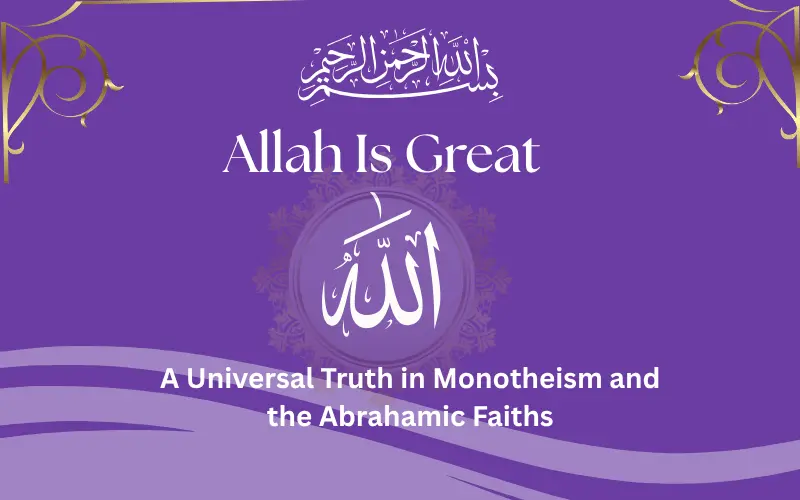
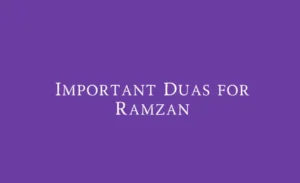
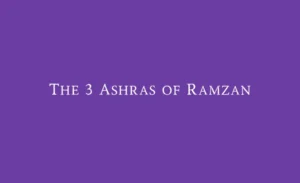
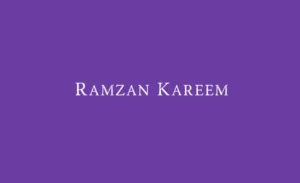
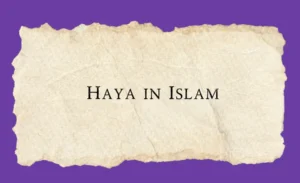

One Response